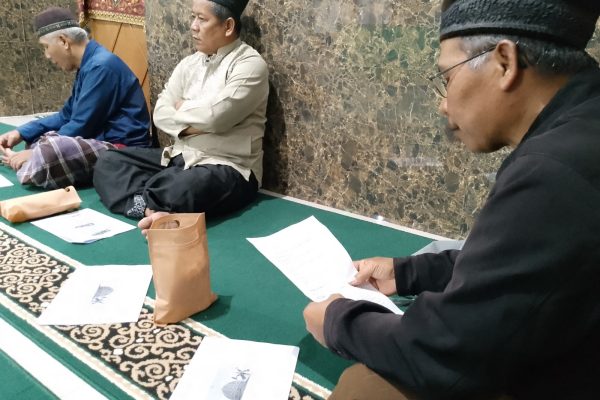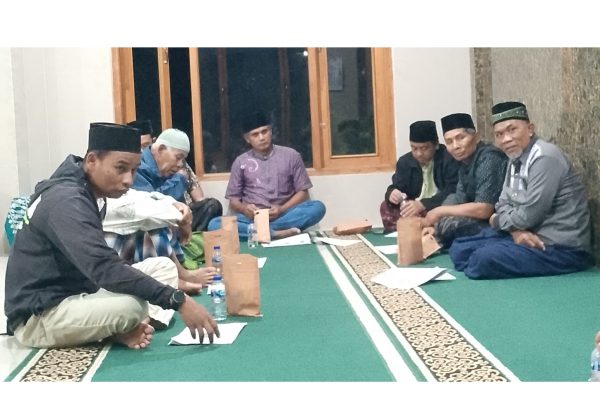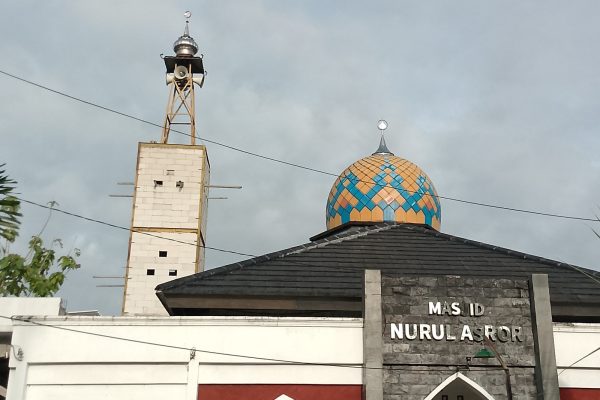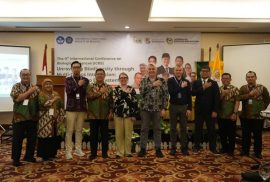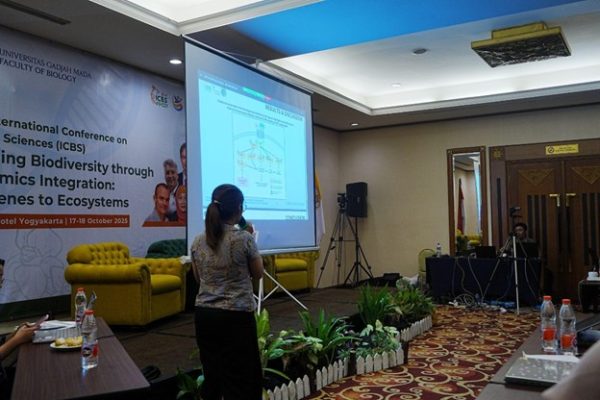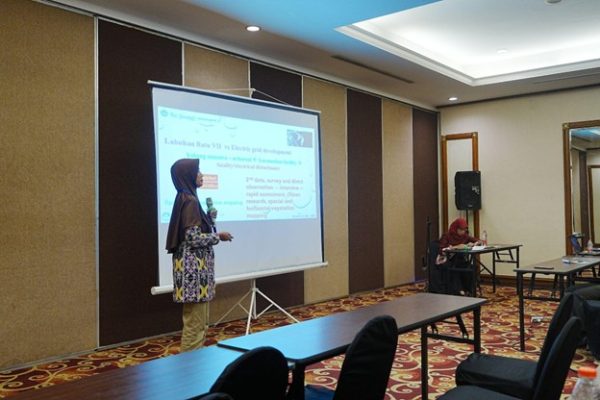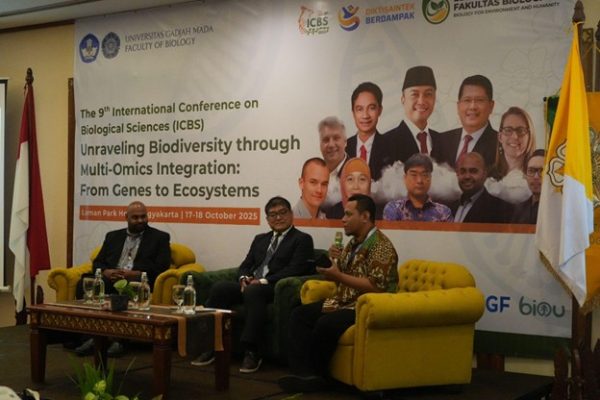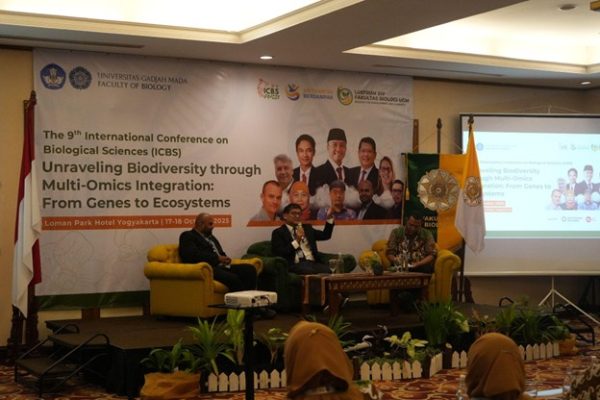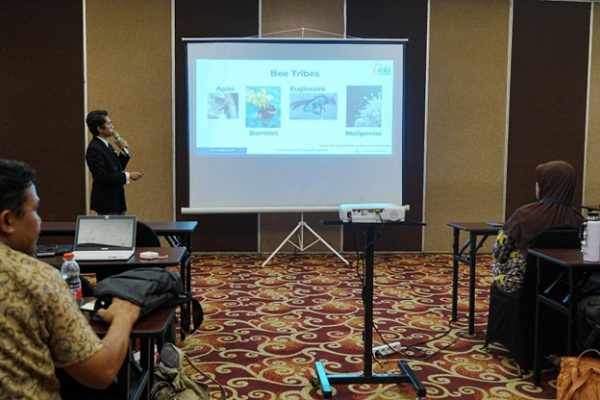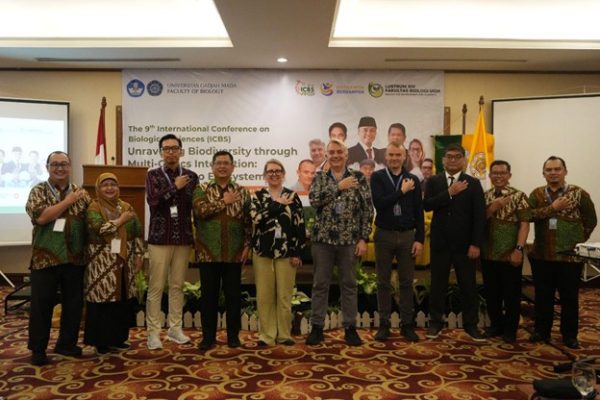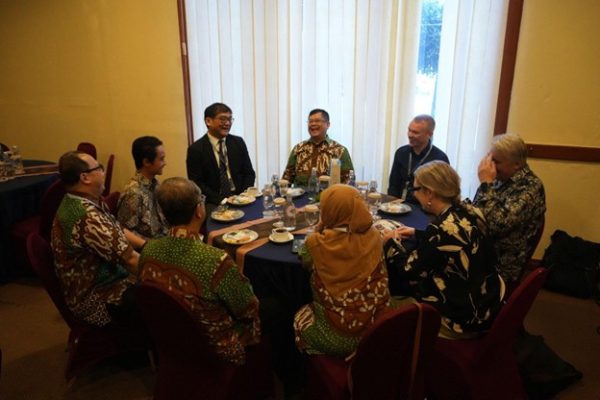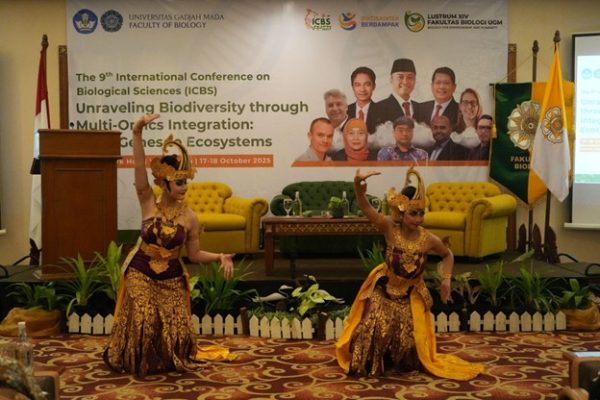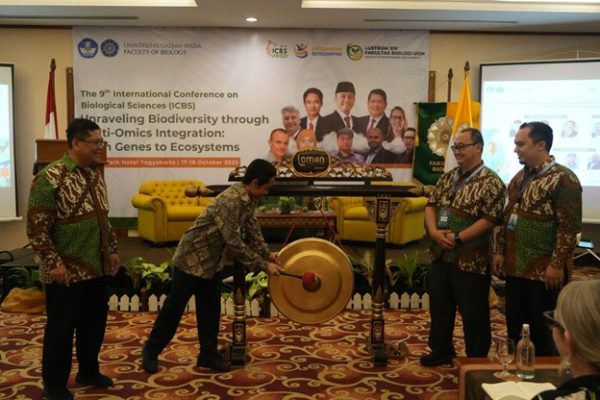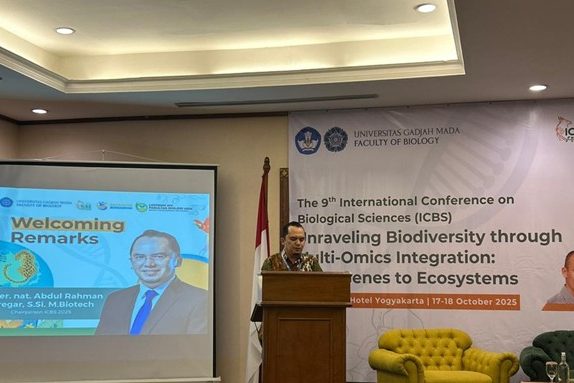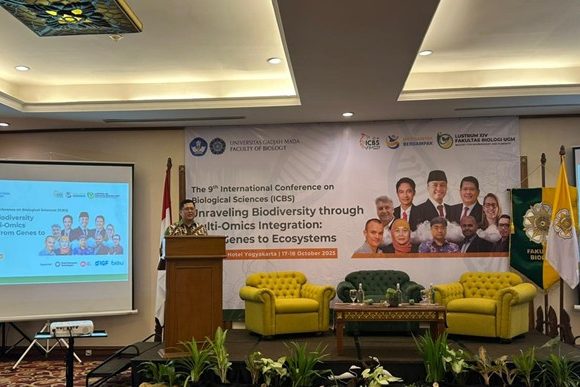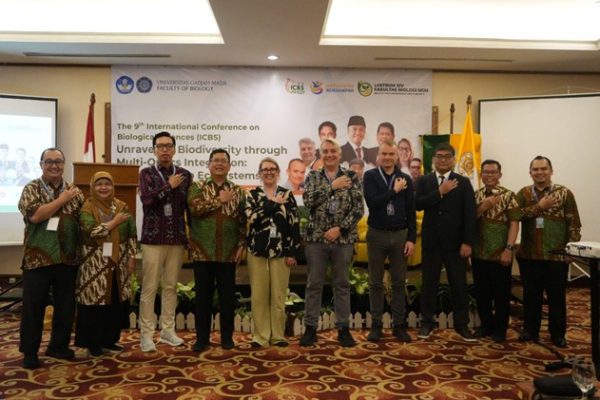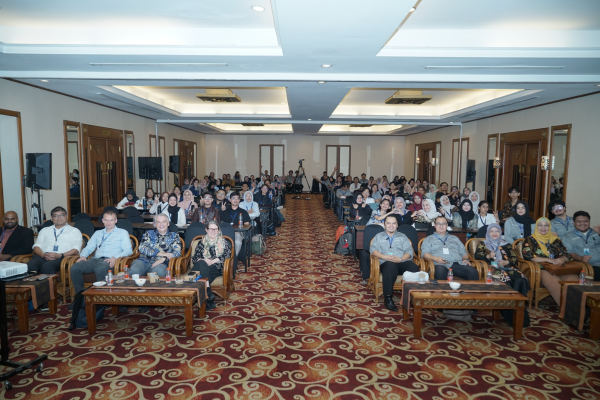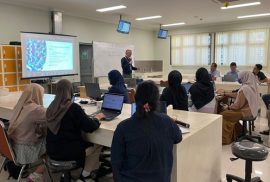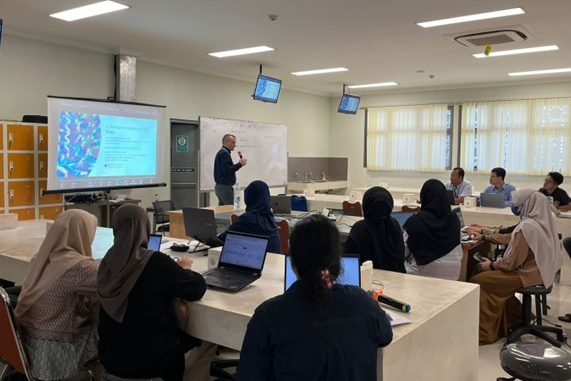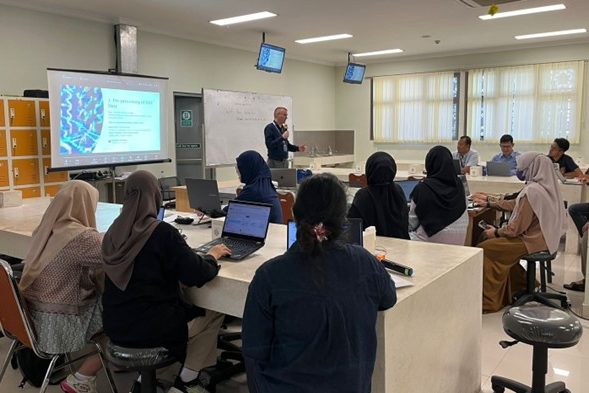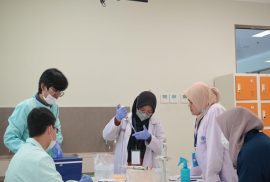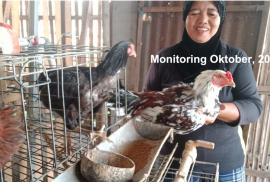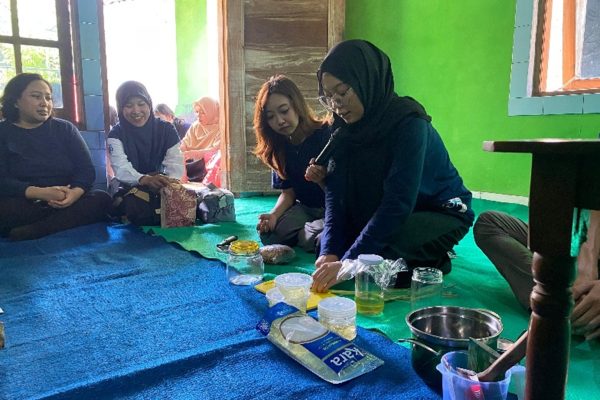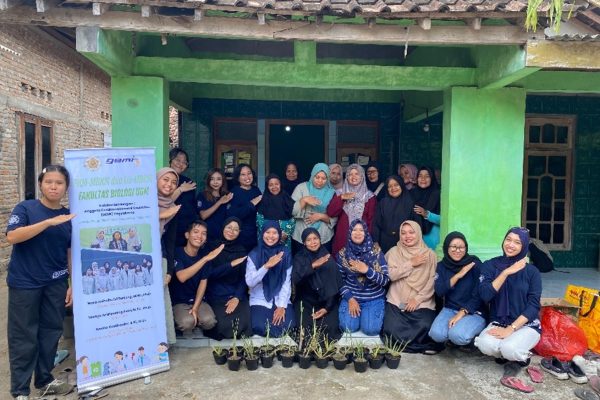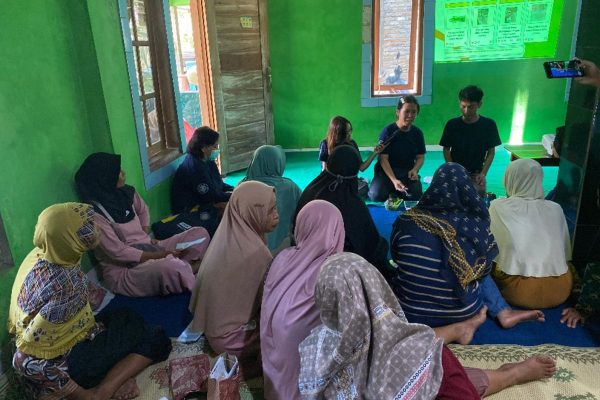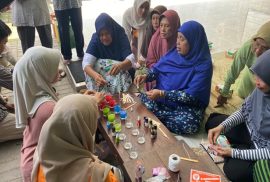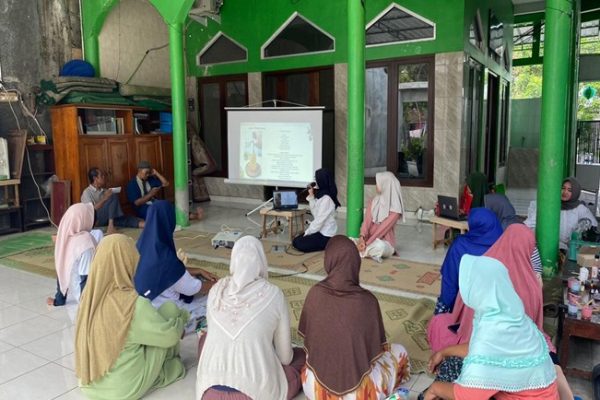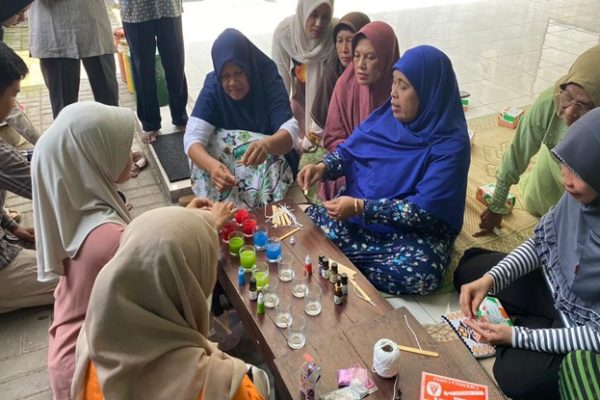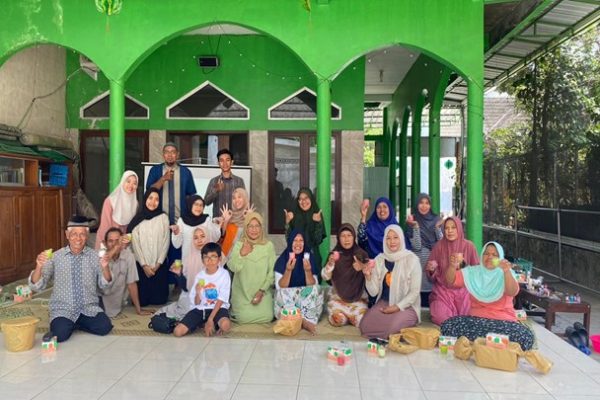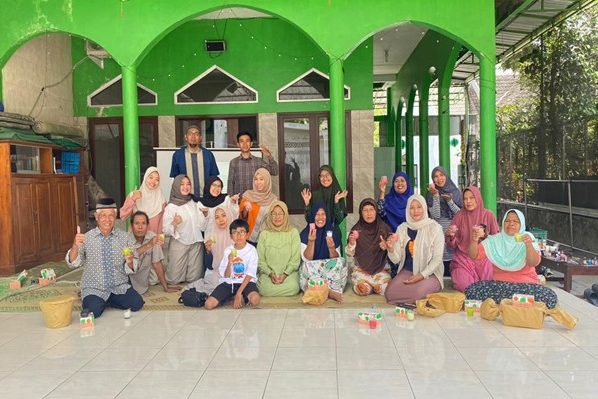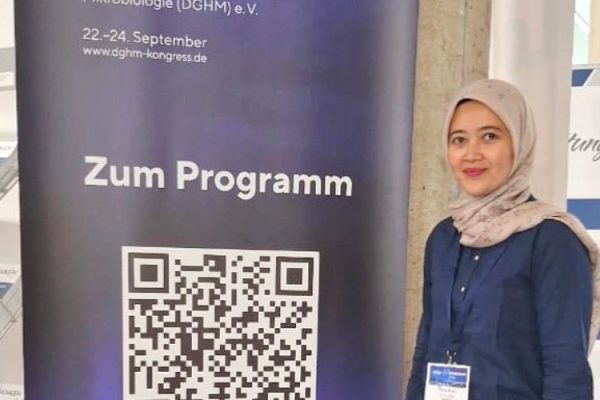SDG 3 : Establish Good Health and Well-Being
by the PkM-MBKM Team of the Faculty of Biology UGM
This year’s conference features two distinguished keynote speakers:
- Dr. Thomas Sicheritz Ponten, Center for Evolutionary Hologenomics, The Globe Institute – Faculty of Health and Medical Sciences, University of Copenhagen, Denmark; and
- Thorunn Helgason, Chair in Ecology, School of Biological Sciences, University of Edinburgh, Scotland.
In addition, ICBS 2025 presents invited speakers from leading institutions across the world, including:
- Prof. Dr. Bent Petersen, Center for Evolutionary Hologenomics, The Globe Institute – University of Copenhagen, Denmark;
- Dra. Tuty Arisuryanti, M.Sc., Ph.D., Department of Tropical Biology, Faculty of Biology, Universitas Gadjah Mada;
- Chiharu Nakashima, Ph.D., Graduate School of Bioresources, Mie University, Japan;
- Madya Ts. Dr. Muhammad Abdul Latiff Bin Abu Bakar, Faculty of Applied Sciences and Technology, Universiti Tun Hussein Onn Malaysia; and
- Riza Arief Putranto, D.E.A., Indonesian Oil Palm Research Institute (IOPRI), RPN Holding PTPN III.
Beyond its scientific objectives, ICBS 2025 also contributes to the advancement of the United Nations Sustainable Development Goals (SDGs), particularly:
SDG 13: Climate Action – promoting research on adaptation and mitigation to climate change,
SDG 14: Life Below Water and SDG 15: Life on Land – supporting biodiversity conservation and sustainable management of terrestrial and aquatic ecosystems,
SDG 3: Good Health and Well-being – advancing biotechnological and genomic research that benefits human and environmental health, and
SDG 17: Partnerships for the Goals – fostering global scientific collaboration among Universitas Gadjah Mada, the Consortium of Indonesian Biologists (KOBI), and Universiti Tun Hussein Onn Malaysia.
A key highlight of the session was the introduction to KBase (the Department of Energy Systems Biology Knowledgebase) a collaborative online platform for efficiently analyzing and integrating genomic data.
Through live demonstrations, participants learned how to process sequencing data, perform gene annotation, and explore functional relationships among microorganisms using the latest bioinformatics tools and databases.
#ICBS2025 #FakultyOfBiologyUGM #BioinformaticsWorkshop #UniversityofCopenhagen #MetagenomeAnalysis #PhageMining #KBase #SDG4 #SDG9 #SDG14 #SDG15 #SDG17 #GlobalCollaboration #GenomicInnovation #SustainableScience
The opening continued with a welcoming address from Dr. Eko Agus Suyono, Vice Dean for Research, Community Service, Cooperation, and Alumni, who emphasized the importance of mastering modern genomic technologies to advance molecular biology research in Indonesia.
#ICBS2025 #FakultasBiologiUGM #OxfordNanopore #IntegratedGenomeFactory #BioinformaticsWorkshop #Metagenomics #GenomicInnovation #SDG3 #SDG4 #SDG9 #SDG14 #SDG15 #SDG17 #SustainableScience #ResearchForSustainability
Contributors: Ardaning Nuriliani, Hendry Saragih, and R. Rohmad Gunawan Hardono.
The 2025 Community Service – Merdeka Belajar Kampus Merdeka (PkM-MBKM) Team of the Faculty of Biology, Universitas Gadjah Mada (UGM), successfully conducted an educational program in Pajangan Hamlet, Wedomartani, Ngemplak, Sleman, under the title “Health Innovation through the Making of Aromatherapy Candles and Sharing Healthy Herbal Drink Recipes.” This program aimed to enhance community knowledge and skills in utilizing herbal ingredients for health and well-being—aligned with Sustainable Development Goals (SDGs) No. 3: Good Health and Well-Being and No. 12: Responsible Consumption and Production. The team consisted of five active Biology students from the class of 2022, supervised by Dr. Ardaning Nuriliani, S.Si., M.Kes and partner Mr. Gunardi, S.Si.
The event took place on Saturday, October 11, 2025, at Masjid Jami’ Darussalam, Pajangan Hamlet. The session began with educational talks delivered by Ghefira Nur Fatimah and Nimas Ayu Pramesthi, focusing on two main topics: techniques for making aromatherapy candles and healthy herbal drink recipes. During the hands-on session, participants practiced making aromatherapy candles using natural essential oils such as lavender, lemon, peppermint, and lemongrass. The participants enthusiastically created candles of their own preferences. Beyond serving as air fresheners, aromatherapy candles also help promote relaxation, enhance focus, improve sleep quality, and support meditation and emotional balance. In addition, participants were introduced to various easy-to-make herbal drink recipes designed for home preparation. Each recipe was selected based on its health benefits, such as boosting immunity, aiding detoxification, and maintaining metabolic balance. Thus, participants gained not only theoretical understanding but also practical skills that can be directly applied in daily life. Each participant brought home their own handmade aromatherapy candle as a symbol of the new knowledge and skills they had gained—supporting SDG No. 4: Quality Education.
This program is expected to bring direct benefits to the residents of Pajangan Hamlet while serving as an inspiration for sustainable collaboration between academia and local communities. Through such partnerships, the Faculty of Biology UGM reaffirms its commitment to promoting SDG No. 17: Partnerships for the Goals. With a spirit of sustainability and innovation, the PkM-MBKM Team of the Faculty of Biology UGM demonstrates how scientific knowledge can be applied in real life to improve community well-being.
Contributors: Ardaning Nuriliani, Chelsy Ammara Septiani, Meinawa Amaliah, Nimas Ayu Pramesthi, Syifa Aneira, and Muhammad Fathin Setya Daffa.
Contributors: Ardaning Nuriliani, Chelsy Ammara Septiani, Syifa Aneira, Meinawa Amaliah, Nimas Ayu Pramesthi, Muhammad Fathin Setya Daffa
Yogyakarta/Jena – September 2025







